I walked through the front door into the enormous lobby of the Grand Tazi Hotel. Immediately I remembered a film I had seen years ago called The Best Exotic Marigold Hotel.
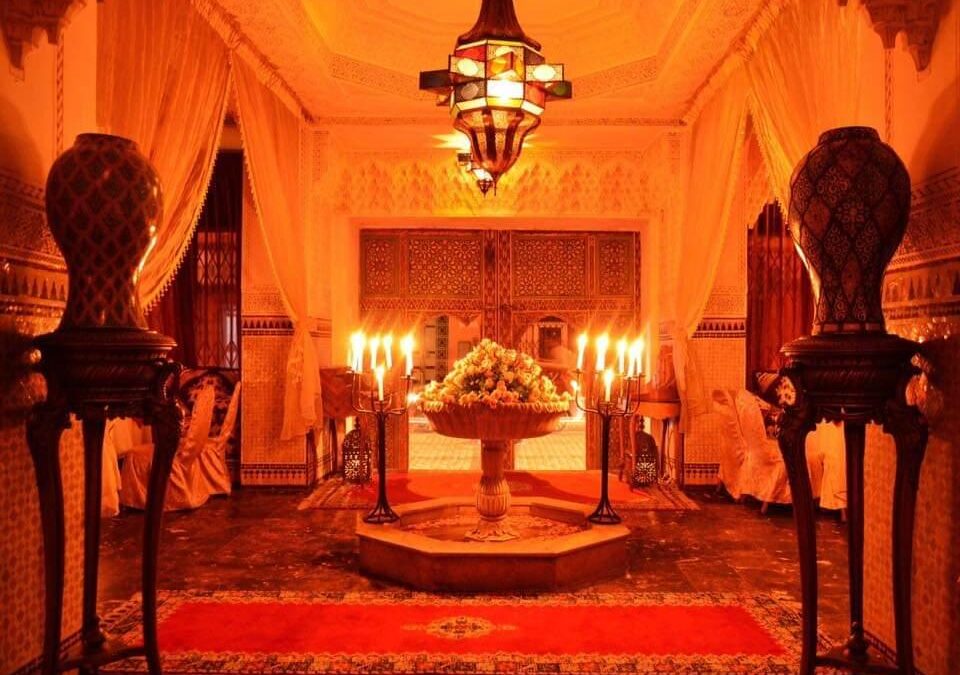
In the film, a group of hotel guests arrived expecting a 5-star luxury hotel based on some super glossy brochures. The pamphlets were filled with spectacular photos but did not resemble the structure in front of them.
What they encountered instead was a dilapidated old place that eventually they would each fall in love with.
Today, I am writing this from my favorite Moroccan cafe, smiling as I look across the street at the building I have fondly nicknamed, “The Best Exotic Tazi Hotel”.
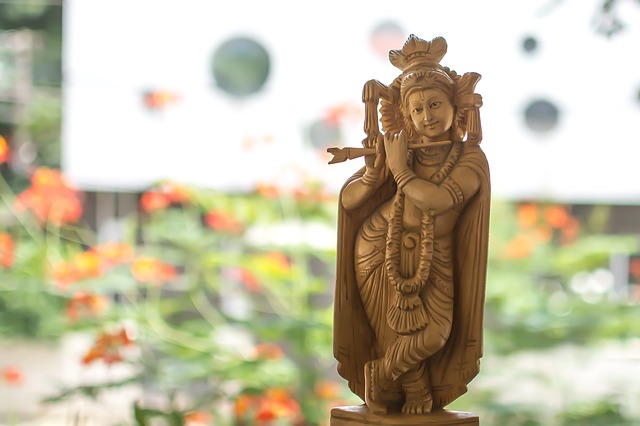
It’s usually relatively easy for me to write a review of my accommodations when I travel. Whether I stay at a luxurious hotel or desert camp, or a riad deep within the Medina, I have a formula that gives an accurate, honest, detailed review.
The good, the bad, the ugly, and the unexpected are the areas I focus on when I am reviewing a new place.
It should be simple to stick to these guidelines to describe Tazi. But Tazi became much more than merely a budget hotel for me, making it impossible for me to be objective.
Here’s one way to explain why; I once dated a man named Stan. The first time I met Stan, I thought he was a sweet, nice guy. Not my type physically, but there was something special about him.
Stan was bald, while I loved men with long hair. He had an okay body, but secretly I loved muscular men. He was successful and reasonably affluent but had grown up poor, so he lacked the comfort and ease wealthy men had with money.
Stan was not at all the strong, confident alpha male I was drawn to. Oh, he was lovely, but he was not my typical type. However, he was a good guy, so I decided to give him a chance.
A few months later, I was crazy about him.
I think it was the night he took me out for New Year’s Eve on an unforgettable jazz cruise around New York that I realized things had changed. I no longer saw him as just a sweet, nice guy, but the most amazing guy I’d ever known.
That night, we took photos freezing our asses off on the bow of the boat.
I was wearing an elegant black gown with a gorgeous royal blue scarf wrapped around my shoulders.
Shivering, I grinned at the camera thrilled to be capturing memories of the evening I wanted to remember forever.
As we were posing, I turned to look at Stan standing there in his tuxedo; tall, debonair, elegant.
Somehow, Stan had transformed into the most handsome man in the world.
Tazi did that to me.
During the brief time I lived there, I fell madly, deeply in love with “The Best Exotic Tazi Hotel”.
By the end of the film, each of The Best Exotic Marigold Hotel characters had changed their opinion of the former palace.
I was captivated by “The Best Exotic Tazi Hotel”.
Tazi became my home. I would reside at my sanctuary for an undetermined period until the world was somewhat normal again.
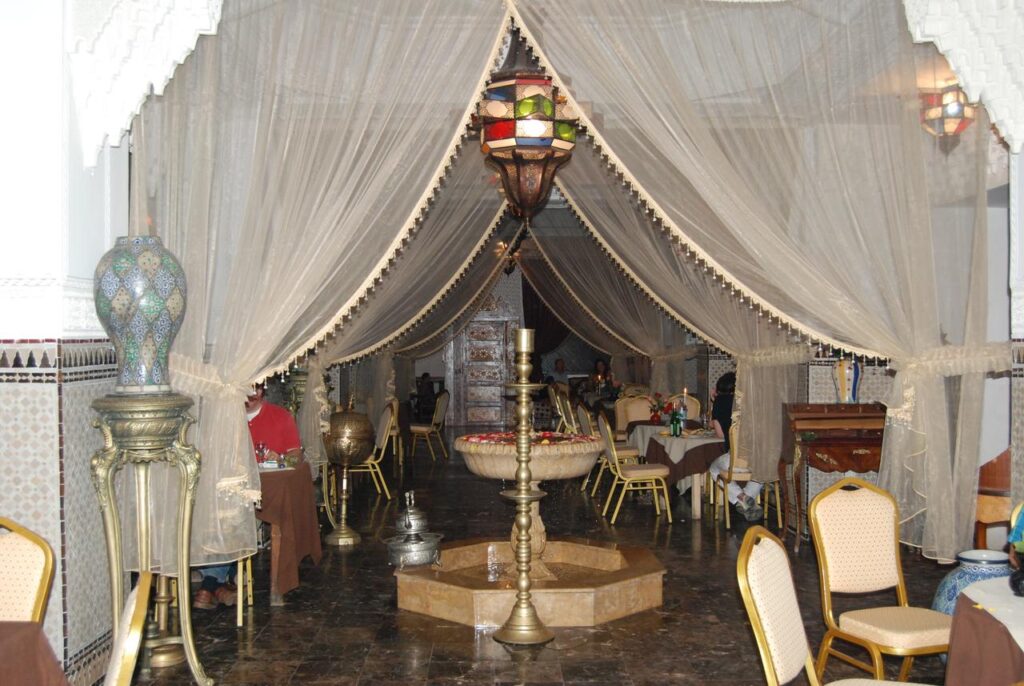
Tazi’s owner’s incredible generosity overwhelmed me. I was sure he must be married, so I struggled to avoid having a wild, insane crush on this man who had no interest in me.
However, each time the owner came around, I could be seen suddenly fluttering my eyelashes like a damn butterfly caught in a net. Several times I even attempted to sound sexy by speaking the three French words I know in an accent that made me sound more like a poor girl from Rajasthan than the femme fatale I considered myself.
Lest you judge me, please understand the immediate infatuation that washed over me from the moment I walked into the lobby and stood there, completely frozen.
It was not merely the man and his generosity that had captured my heart, or the lovely staff who would become my brothers and sisters, and this place far from home.
No, it was Tazi itself I was in love with.
I slowly turned, awestruck, admiring the intricately carved moldings, gorgeous traditional mosaic tiles, and the magnificent arched doorways.
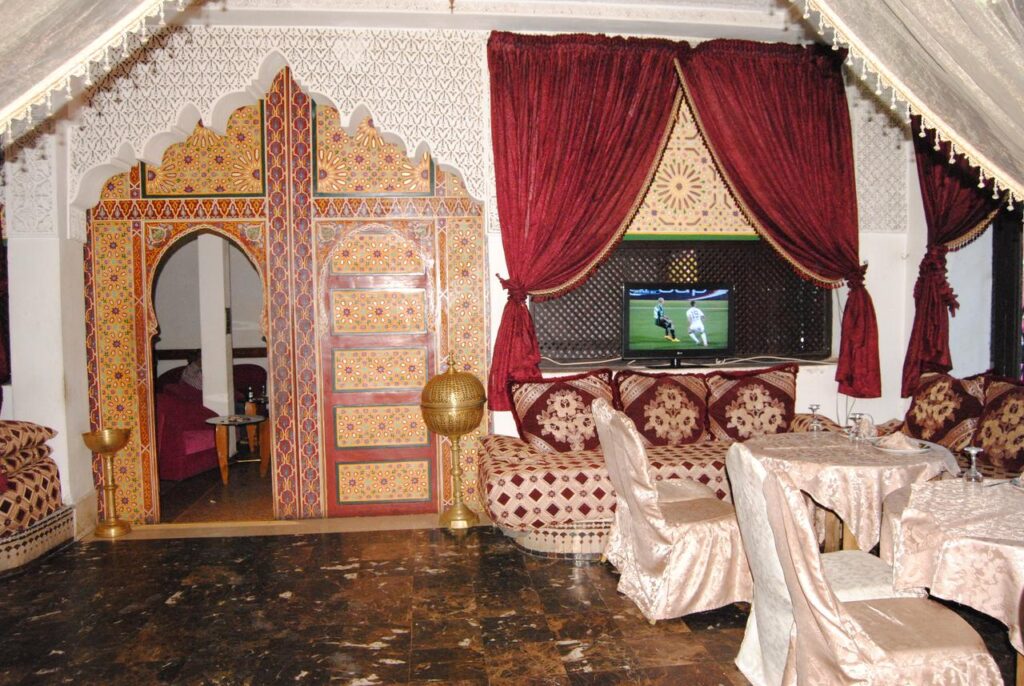
Sure, the lobby was desperately in need of a fresh coat of paint, and the chandeliers were missing at least half of the hanging crystals, and even a sliver of the blazing Moroccan sun would brighten up the place.
But I looked past the darkness and could see its former glory, magnificent and regal, like Katherine Hepburn. I loved watching Hepburn on tv as she would confidently apply her favorite red lipstick, daring anyone to deny her still stunning beauty.
To understand my love affair with Marrakech hotels’ grand dame, you need to know my state of mind as I arrived, months after the lockdown began in March.
I had been bouncing around, from a luxury desert camp to a hotel with unequaled sunset views over the ocean, to a beautiful villa surrounded by rose bushes, a pool steps from my room, and the perfect flower garden bursting with color, only to end up in an isolated, tiny desert village, alone, terrified and broke.
Tazi saved me.
The formerly pampered princess had nowhere to go.
I was totally, completely stuck in this North African country, far from home, with very little money.
Stunned, dazed, confused, I stood there with very little pride left, looking around my less than luxurious surroundings, grateful and still in shock that the owner had offered not only me but others in the same position a free place to stay.
I had no idea what I would have done had I not found Tazi.
Frightened, alone, anxious, and filled with fear, I stood there as the staff checked me in.
Immediately I had the feeling that I was safe.
I was filled with a deep knowing that I was home.
Perhaps visitors on holiday for a week or two would prefer someplace fancier, much more modern and luxurious. Maybe La Mamounia or Royal Monsieur. Or even one of the thousands of gorgeous budget riads in the medina.
But I needed Tazi.
Initially, I needed this place because I was not able to afford to stay anywhere else. Almost every hotel, riad, and desert camp in the country closed immediately when the state of emergency was announced in March.
The pandemic had reached not only Morocco but had rapidly spread around the world.
I was a refugee.
I was frustrated at not being able to go home since the Moroccan government immediately shut down airspace, and grateful to The King for handling the pandemic in the firm, decisive, swift way I’d wished my president had.
Being in Morocco when the virus was rapidly infecting (and killing), my friends and neighbors back home in NYC had likely saved my life.

And now Tazi had saved me. Not just from financial devastation and a safe, clean place for me to stay; Tazi saved me from loneliness and homesickness and gave me the strength I needed to be patient and courageous.
Of course, I see Tazi through rose-covered glasses. I am not at all objective. It is simply not possible for me to give an objective review about the building that became my safe haven, or the employees who took me under their wings as a sister, protecting me, making sure I was comfortable, well-fed, and happy.
My new friends teased me about how I pronounced “Bab el Khamis,” my failed attempts at speaking Arabic, and calling me a Berber girl when I wore unflattering caftans and fake silver rings that turned my fingers green. They laughed when I sang along with my Oum (my favorite Moroccan singer) on Youtube.
And they comforted me when I burst into tears the day the Moroccan government extended the lockdown yet another month.
They were my brothers and sisters, and I loved living with my new family in my new home.
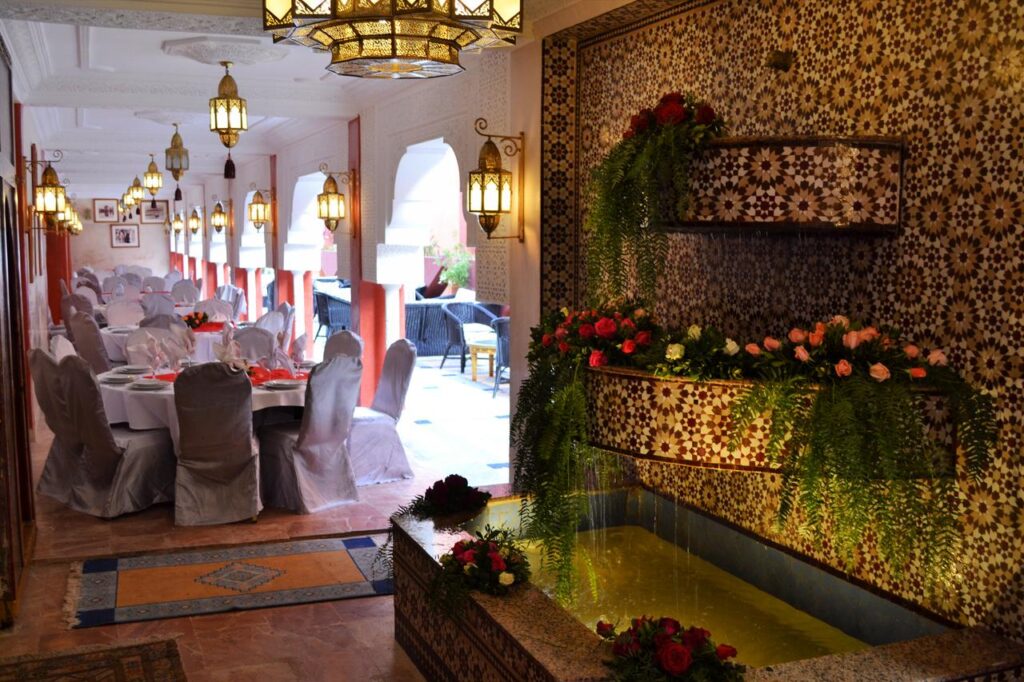
At one time, it did indeed live up to its name, The Grand Tazi Hotel that sits protectively at the entrance to the famous street that lures visitors and locals alike into Djemaa al Fna Square.
I would not include Tazi in the list of “The Most Romantic Places in the World,” or other articles I write about luxury honeymoon hotels.
But oh, how Tazi seduced me with its charm and romance, mosaic tables and carved archways and candles and traditional Moroccan lanterns that flicker and light the way.
At night when things are “normal,” and there is no corona lockdown in the world, the enormous restaurant at Tazxi is filled with live, traditional Moroccan music and belly dancers moving gracefully around candlelit tables.
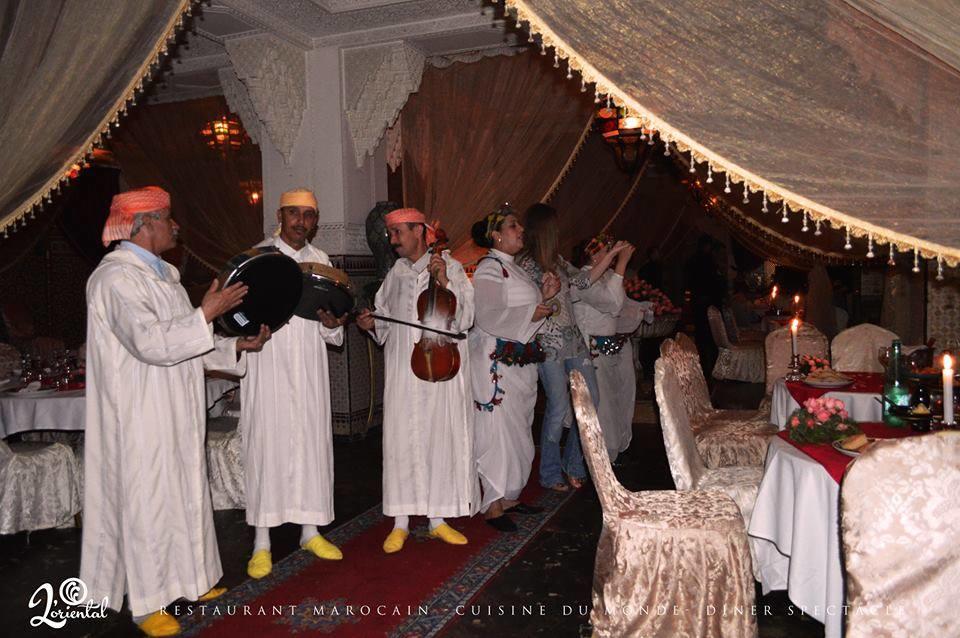
The scent of simmered-all-day lamb tagines and spices and freshly cut roses permeate the air as visitors delight in the entertainment and get s little too intoxicated with the excitement and exotic-ness of it all.
The British visitors in The Best Marigold Hotel film were shocked to find their Indian hotel much less luxurious than expected. What was advertised as an affordable palatial residence and the perfect retirement home for those on a budget to live out the remaining days of their lives in luxury was an old building in desperate need of renovations.
Oh, The Best Exotic Marigold Hotel was indeed a former palace. And Tazi, like Best Exotic Marigold, has remnants of its past grandeur everywhere; from the spacious rooms and antique furniture, and artwork and marble columns, to the lavish décor surrounding you.
At The Best Exotic Marigold Hotel, if something can go wrong, it did. But Sonny, the manager, made every effort to fix whatever favorite problems occurred.
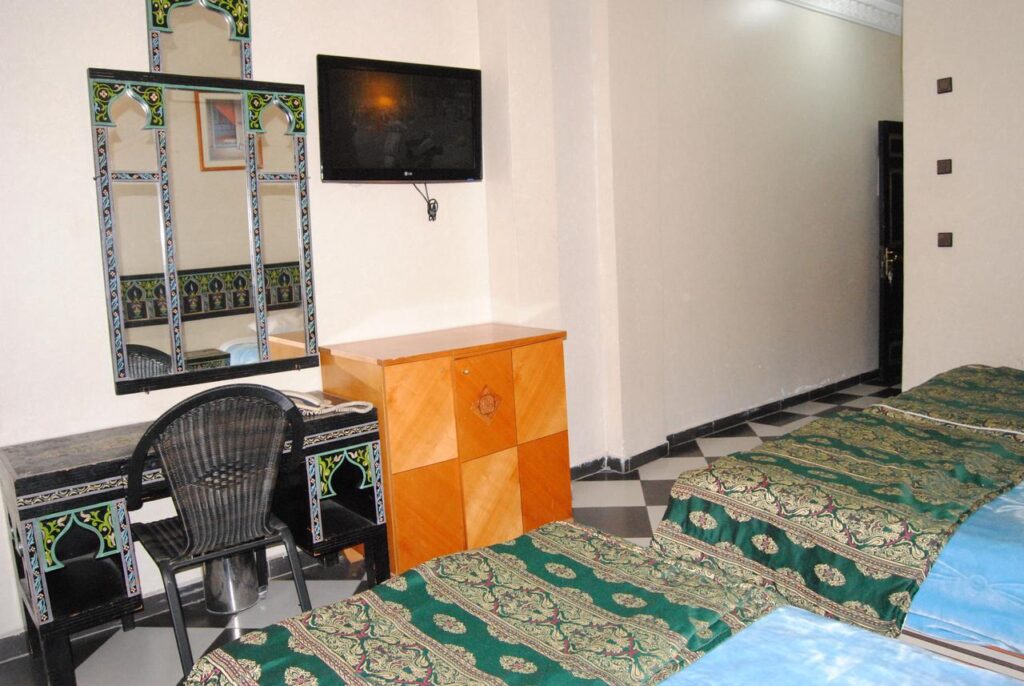
he staff at Tazi did the same. Whether my light bulbs burned out or the air conditioning wasn’t cold enough, or the pampered princess in me preferred a prettier room with a balcony overlooking the action in the streets outside, the employees made sure they found a solution, or they moved me to another place.
It didn’t matter that I was a penniless princess staying for free. I was treated like royalty.
It mattered little that the employees at Tazi were not working in a 5-star luxury hotel. They acted as if they were.
How I wish I could express in a more eloquent way just how much I love this place, this old building that became much more than merely a hotel for me.
The décor was outdated and badly in need of renovations.
But I secretly love the traditional fixtures, the bold colors of the exquisite. I adored the typical Moroccan, antique, hand-carved woodwork and the fact that while some rooms do have modern showers and furniture, I was given a more “Moroccan,” traditional chamber.
Soaking in my enormous bathtub, (something I have rarely found at riads or hotels in Morocco) became a nightly ritual for me as I meditated on where I had gone wrong, and the things I needed to change so that I would never find myself in this situation again.
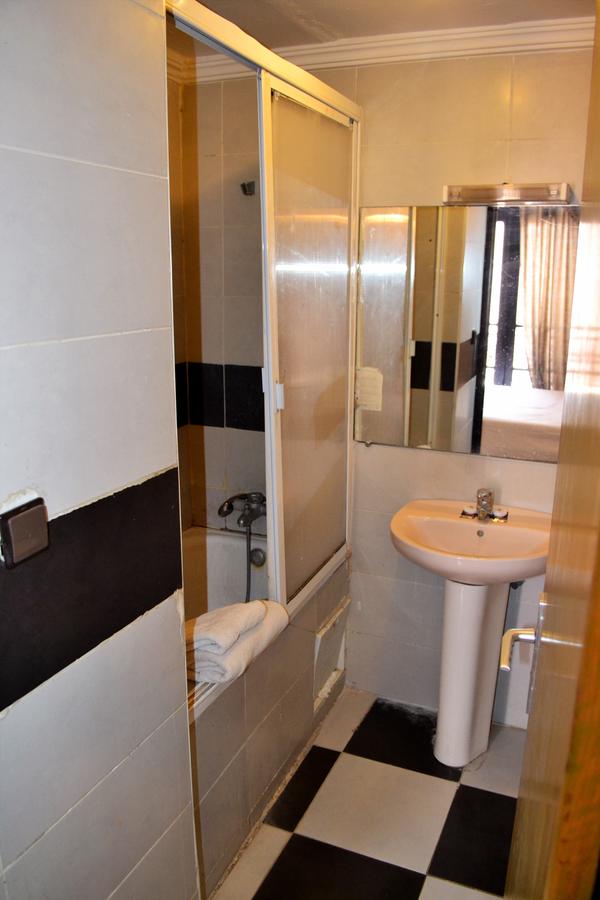
I loved my first room the most. I had a quaint balcony with a small sofa where I ate my meals and worked daily on my laptop, watching the cats and birds nearby playing each afternoon.
Something that annoyed and amused me was the four enormous beds in my room that I did not need (alas), but I enjoyed hugging all eight big fat pillows on my bed.
The wifi signal did not reach my room but I preferred being in the far end of the hotel, away from the hustle and bustle and noise of the “Big Square.”
Part of the charm I have for the hotel is similar to why the world fell in love with The Best Exotic Marigold Hotel film; the characters who lived there.
In the film, each of the people we meet has a story, each with a different reason for ending up there.
At Tazi, I found a fascinating assortment of strange but lovely misfits, foreigners who also got stuck in Morocco during the lockdown and were invited by the owner to stay until flights resumed.
I met guests from America, Switzerland, Japan, Senegal, and Peru. Slowly I began to learn bits and pieces of their lives and how they came to Tazi. Each had a story, each on a journey, finding themselves stuck alone in another country carrying hidden secrets of unfulfilled, broken dreams.
Tazi saved us all, allowing us a retreat where we could sit, reflect, and breathe before moving on to the next part of the journey.
Living at Tazi taught me to open my heart and care for others and share a completely foreign concept to this New Yorker who lived by the motto, “Survival of the fittest.” And lest you think I was sharing my food, money and my time listening to their woes and what brought them here because my fellow residents had become friends; no, I did not particularly like the other refugees.
I found them filled with negative energy, ungrateful, complaining nonstop about the lack of daily housekeeping and hot water, and annoyed that most of the employees at Tazi did not speak English. It mattered little that we were visitors in an African country where Arabic (Darija) and French were the main languages.
I was amazed at their complaints of spotty wifi, grumbling when they needed to come to the lobby to get online, or that housekeeping was every other day and not daily. Mind you, they never even considered tipping the hotel staff.
I was most appalled when they insisted on leaving the air conditioning on for hours during the day when they left their rooms.
Ungrateful, inconsiderate, and entitled mofos.
Still, they had become my family. I suppose it was similar to having siblings you don’t entirely respect or admire, but you’re blood, and you have a particular responsibility toward each other.
But it was the staff at Tazi who I bonded with, who made me feel protected, safe, loved.
They called me Jamilla, which means “beautiful” in Arabic. And although I felt ridiculous and secretly blushed at first, I slowly began to hate myself less and less. I began to believe that I was not the fat, ugly, hideous woman American men, and the media had convinced me I was back home.
I was far from my home, my family, my friends. But these people who had very little of their own, who was also struggling because of the enormous loss of tourism due to corona, shared what little they had with me. They made sure I had food each night and that I was comfortable.
I am often invited to collaborate with hotels. But the owner of Tazi had no idea that I am a writer or that I owned a travel website. He asked no questions; he opened his hotel to me and the others and never asked for anything in return.
Tazi’s owner and staff charmed me, but the building itself has a strange, magical quality and unmistakable charm that seduced me into falling madly in love with it.
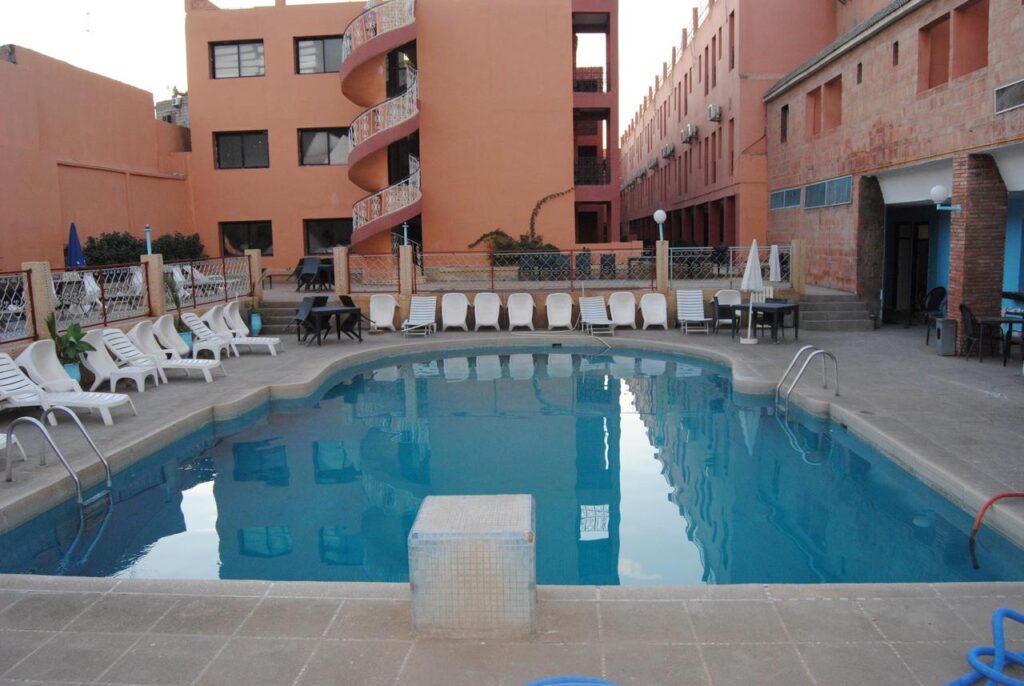
Tazi, with its endless dark hallways and rooms that seem to go on forever, felt like a fairytale castle to me. The unexpected, unmatched colors and textiles and traditional lanterns, chandeliers, and furniture mingled and live alongside modernity attempts, like the bars and swimming pool in the hidden backyard with scattered, modern tables and chairs leaning against prickly rose bushes.
I sat there in the garden by the pool, wondering how I might reinvent myself once I was ready to leave Tazi’s womb and re-enter society again.

I had a temporary reprieve and needed to focus on the dated, dusty, old cobwebs of my battered, bruised soul and restore my body and life to its former glory. I would walk in the park near Koutoubia Mosque and sit under the trees to meditate and pray for guidance.
A motorcycle accident, divorce, a loss of my life savings to a cryptocurrency scam, and heartbreak from past relationships had me broken and disillusioned. At Tazi, I struggled to make sense of my life and the direction I was going in.
A week before I traveled to Morocco, I got the devastating news in NYC from my doctor that I now had diabetes and possibly cancer.
I could barely accept the diagnosis, and through a fog, I weakly promised to return the minute I returned from my trip.
Almost six months later, and I am still here.
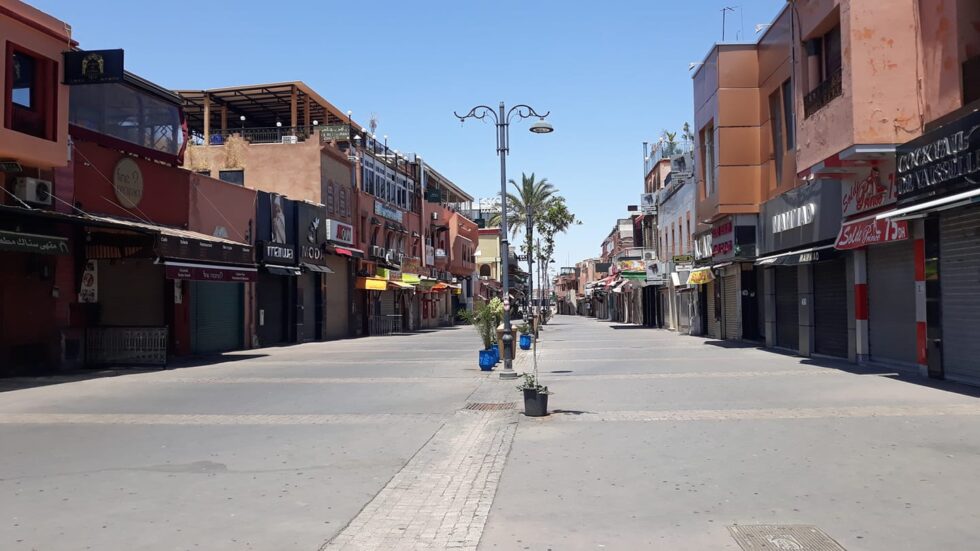
Being at Tazi forced me to confront just how badly I treated my body and my soul. I had to admit that the food I eat, the people I surround myself with, and the activities I choose have a profound effect on me. What exactly do I want to be, do, and have in my life, and what am I willing to do to achieve it?
If I consistently face life with hope, optimism, and being open to new experiences and opportunities, perhaps I will be able to renovate and restore my hopes and dreams. The dreams I buried under the beautiful but old pieces of my life I have been unwilling to change were renewed.
Facing my health and emotional issues in NYC alone was too daunting. In Morocco, I was forced to sit. And pray.
Tazi was a retreat for me, a respite, a place to regroup and accept that I had been resistant to change for a long time. It provided an opportunity for me to reflect and meditate on the dreams I had allowed to fade away.
I needed to make some drastic changes in my shabby life to feel optimistic about the future.
At Tazi, I began to feel empowered and regained the courage to begin the transformation into the magnificent, beautiful, powerful creature I knew I was deep inside.
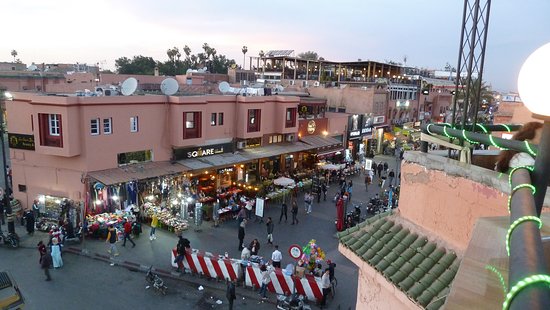
I threw myself into my new life as a “Marreckshia” in the medina’s heart, vibrant with life and bright colors and noise and people.
Despite the lockdown I made friends, opened my heart, helped others, listened to them, and accepted help when I needed it, no longer attempting to be the tough, New York survivor who needs no one.
Even as I stumbled many times along the way, getting distracted by insignificant things that I had no use for on my journey of self-re-discovery, one thing became clear to me: in life, I have been given a second, and third, and fourth, and unlimited chances to start over.
I have stood barefoot on mosaic bathroom tiles, washing my soul to start fresh again, wiping away the tears and frustration and pain, knowing that I am strong enough to survive and thrive and transform like a Phoenix rising from the ashes.

Tazi, and Morocco, continually gives me unexpected delights and treasures each day.
The vibrant, pulsating markets and souks, unexpected bursts of sunlight and sunrises and sunsets from rooftop terraces, bursts of blooming roses and flowers from tiny balconies in the poorest section of Marrakech, and stunning views of mountains in the background, and the compassionate, loving people I met guided me on my journey of discoveries.
As Tazi began to be transformed, renovated, restored, I started fixing my life, restoring it to its former glory.
Tazi is magnificent. And dusty. And grand. And shabby.
The Betty Davis of buildings. It may be old, but the elegance and glamour and grace and charm will never fade.
I have often found myself living out scenes from movies or books I have read. I unexpectedly ended up in each of the places Liz wrote about as she re-discovered herself in Eat, Pray, Love, struggling with my food addiction in Italy, unknowingly searching for God in India, and transforming my body to become incredibly fit and healthy in Bali.
And now, The Grand Tazi Hotel has become my own real-life Best Exotic Marigold Hotel.
The best exotic Tazi Hotel kept me safe and sheltered during the most terrifying experience of my life. I was forced to look deep within myself for the strength and courage to survive that I’d always searched for in men, food, or even the very act of travel, which enabled me to escape from the stresses of everyday life and my fear of failure.

DETAILS:
Grand Tazi Hotel
79 Passage Prince Moulay Rachid
Marrakech 40000
Phone: 05244-42787
As a child, April dreamed of traveling around the world after reading books like Around the World in 80 Days and watching movies like Casablanca and The African Queen. On her first trip abroad, she got engaged on Valentine’s Day, so romance and travel was inexplicably linked for her. After a passionate long distance relationship, she had a fairytale wedding in London. She explored Europe and Africa on a one year honeymoon before settling in the U.S.
Although now divorced, she’s still a hopeless romantic and believes that you never know where you might meet your soul-mate. Whether you want to add romance to your relationship through adventure and travel, you’re in a long distance relationship looking for dating or travel tips and tricks, or you’re a solo traveler looking for love, April is dedicated to helping you make your travel fantasies a reality. She’s an industry expert with a passion for sharing stories of romance, wanderlust and adventure.
When home in NYC she also works as a writing coach and has led the Women’s Writing Workshop for over 15 years. You can find stories and articles by her and other insatiable travel lovers at www.LoveLustorBust.com.








